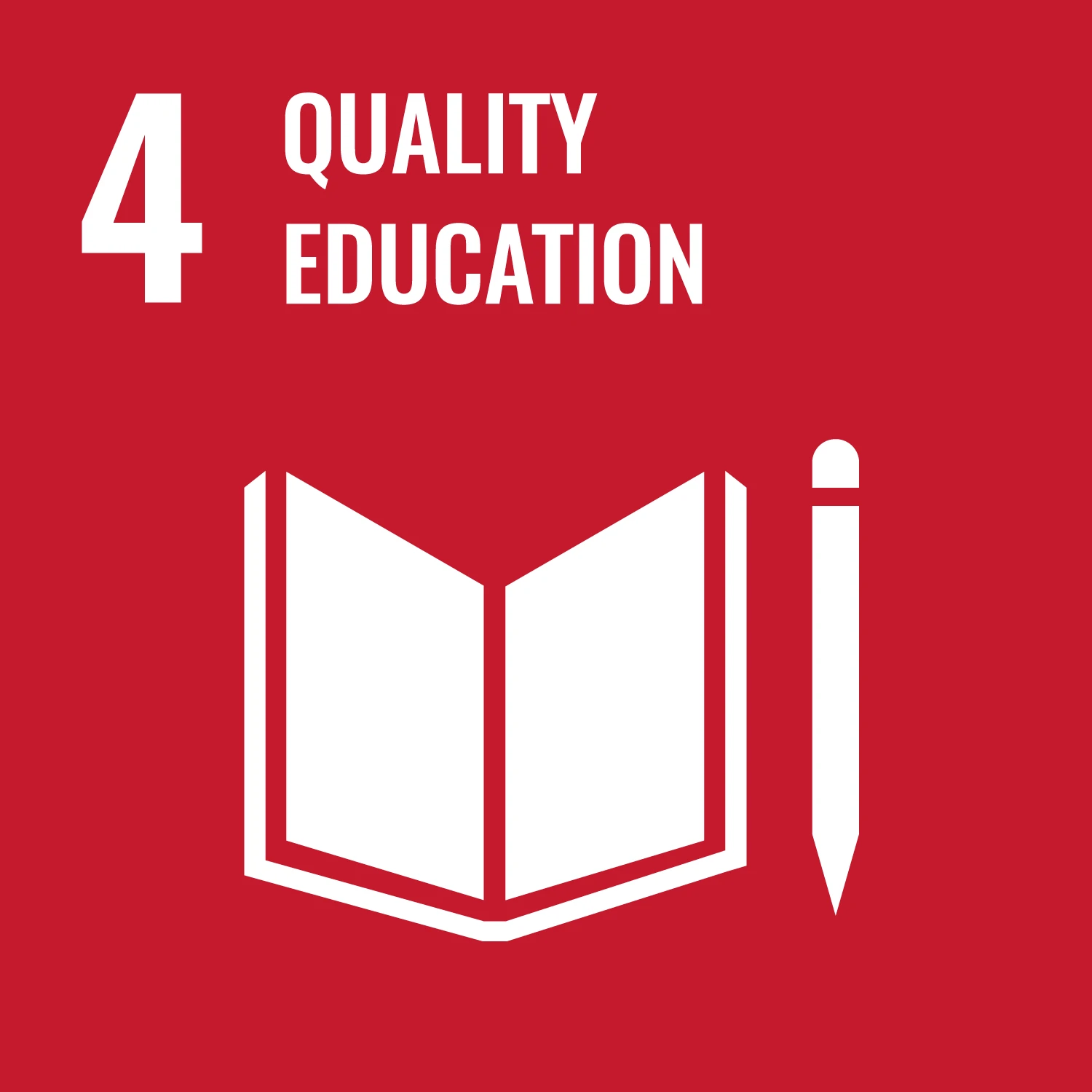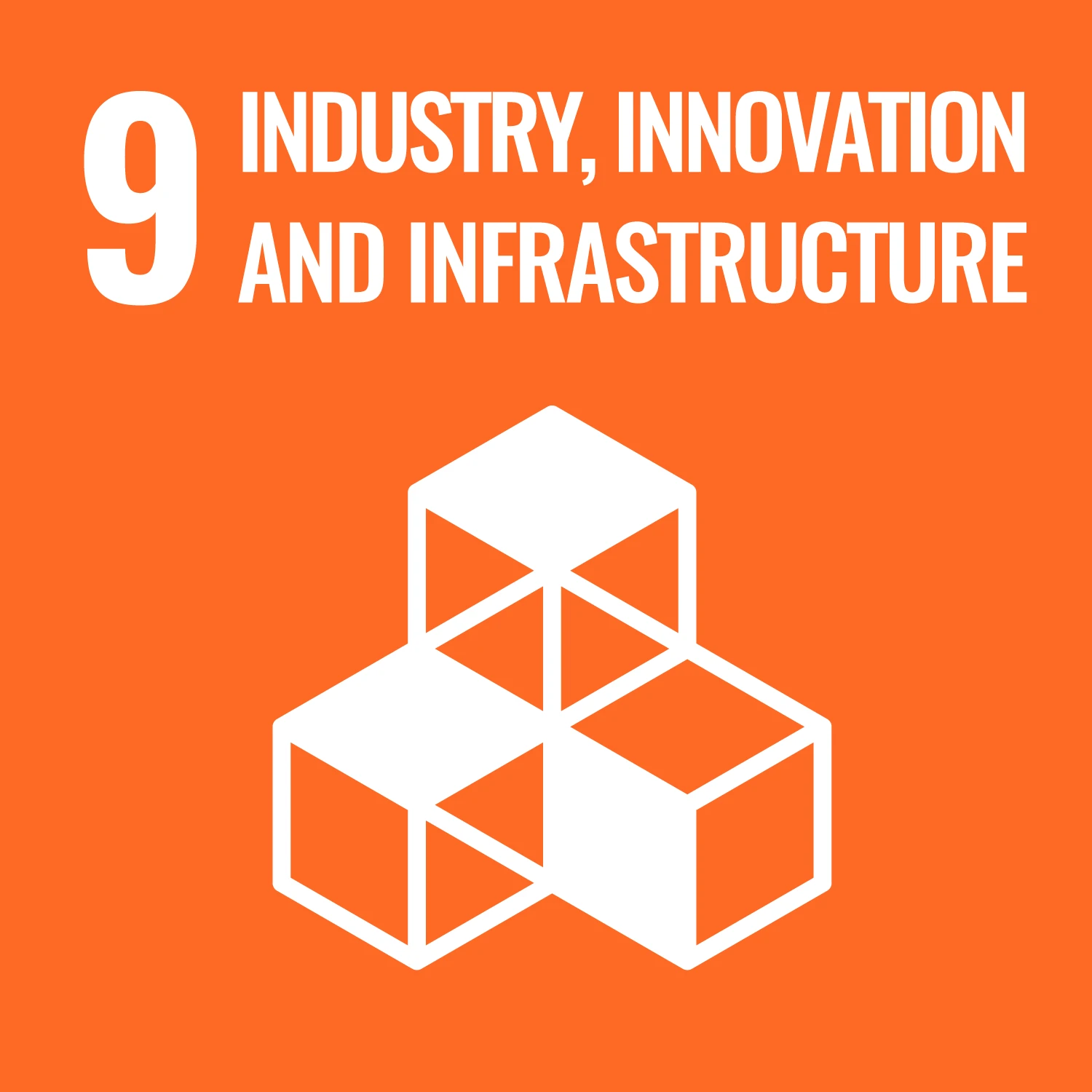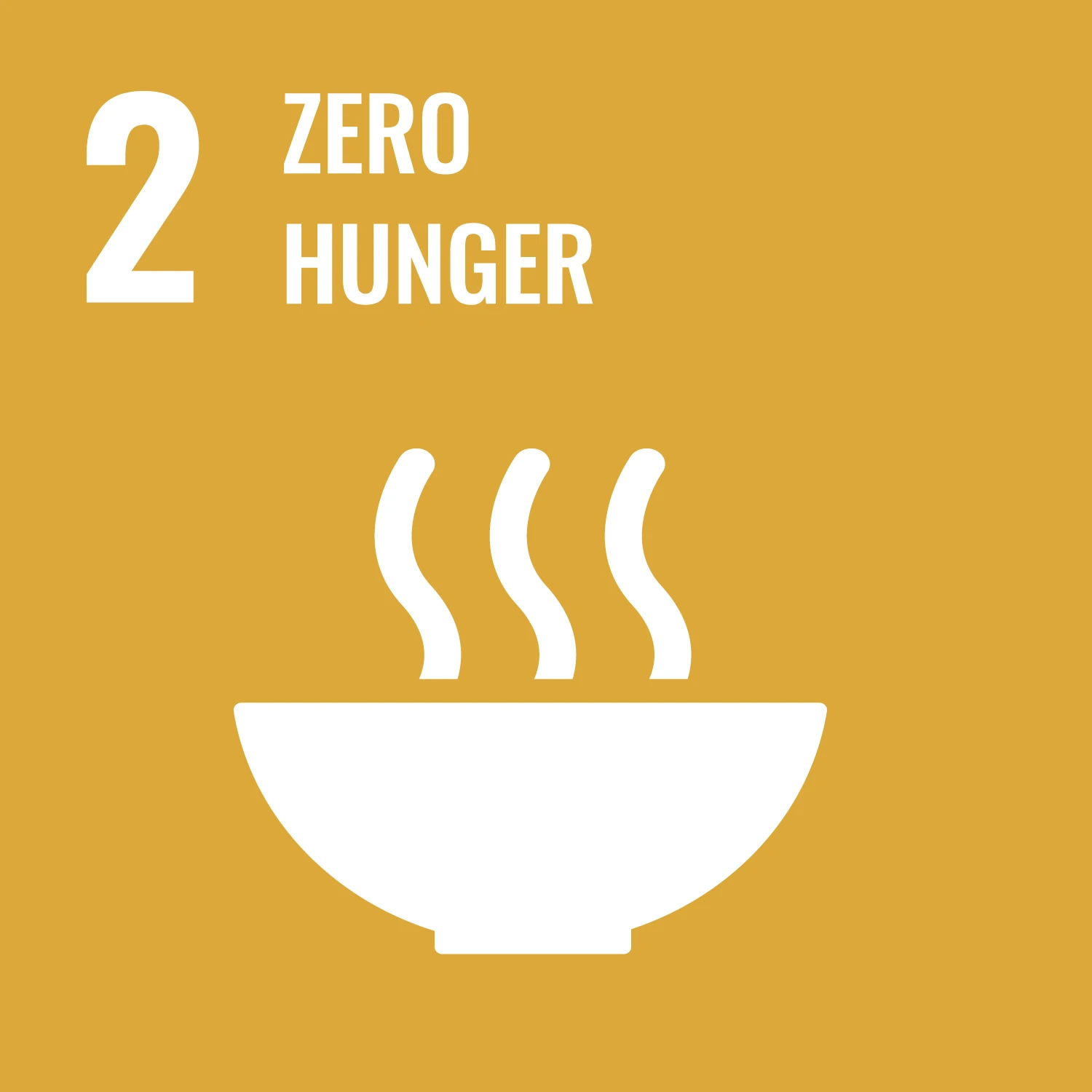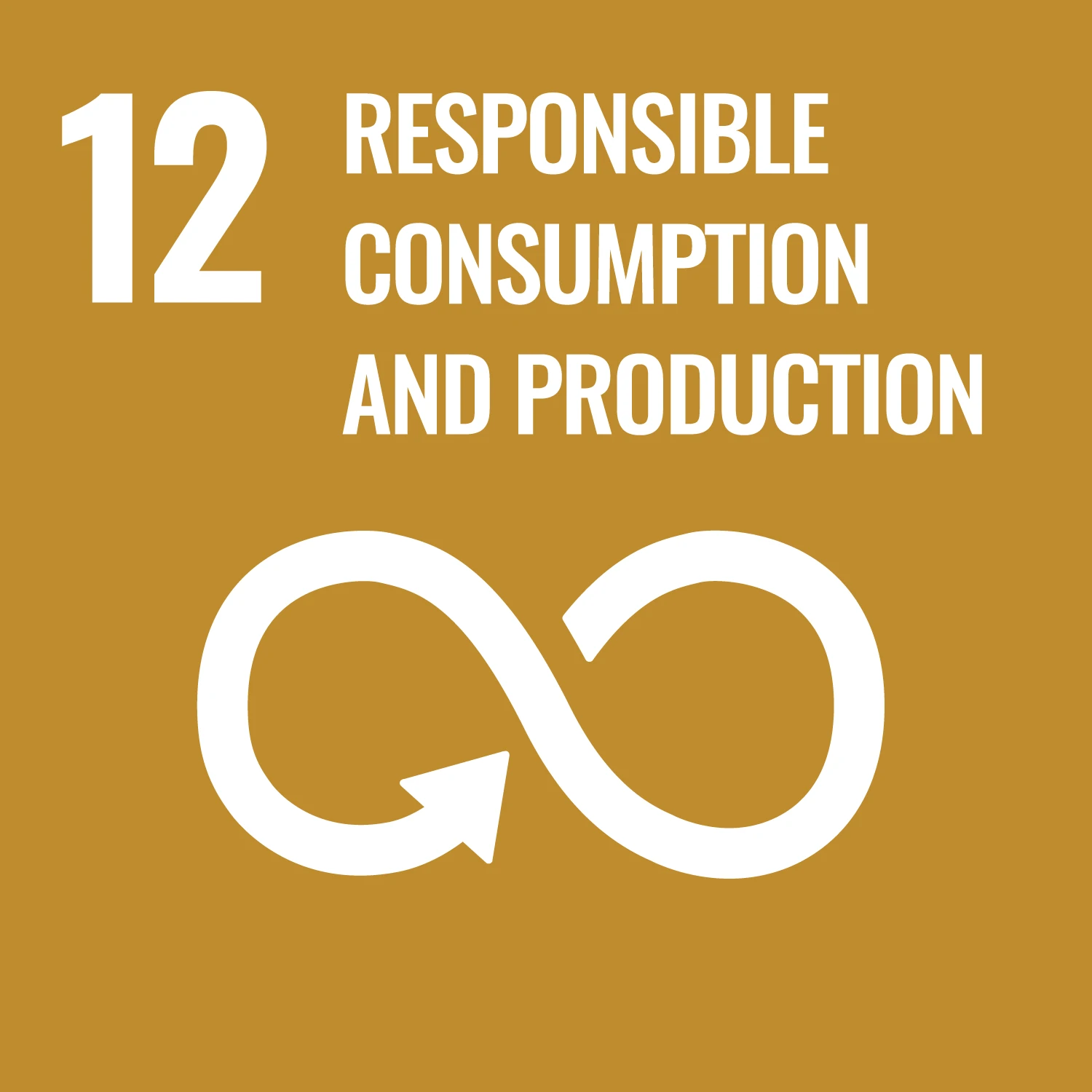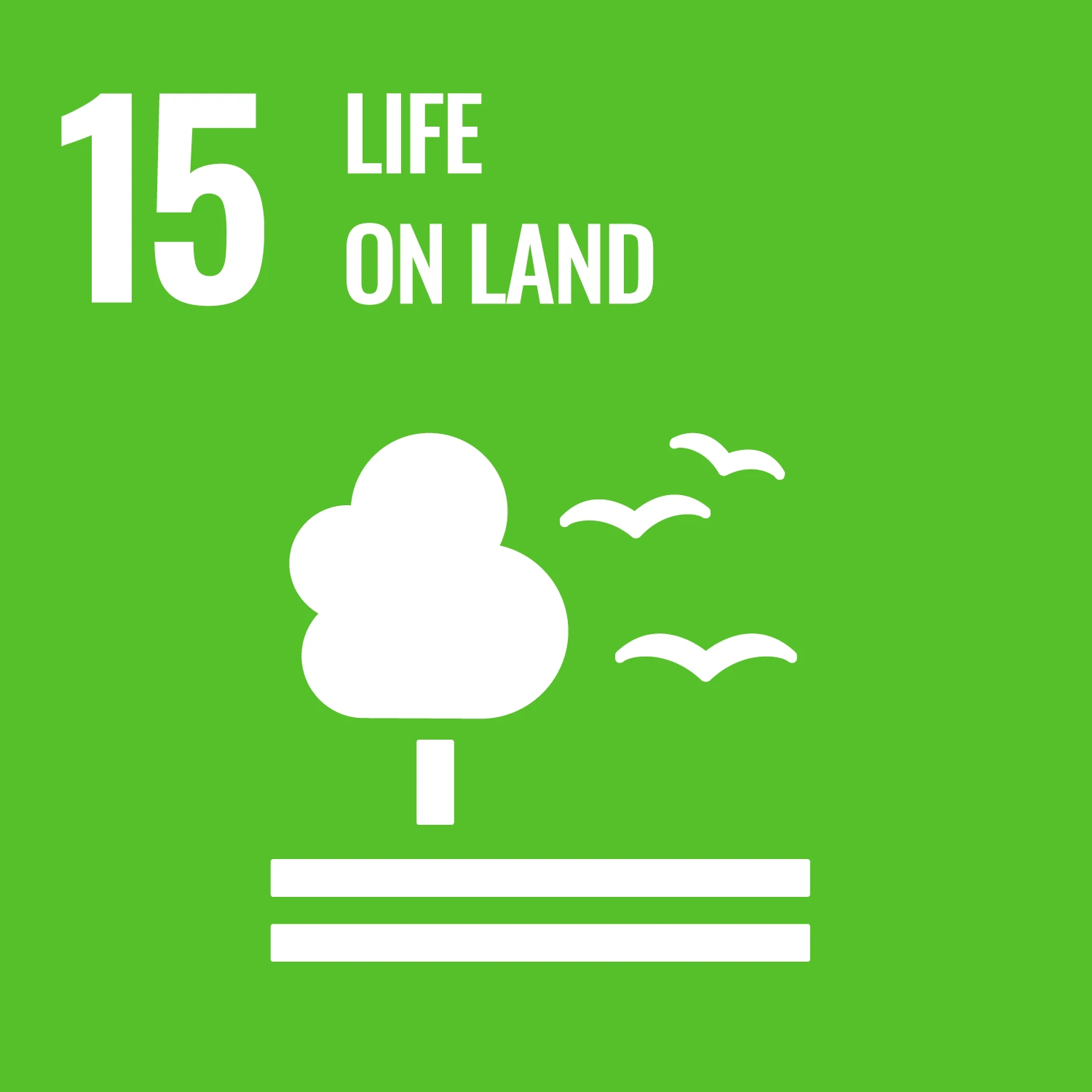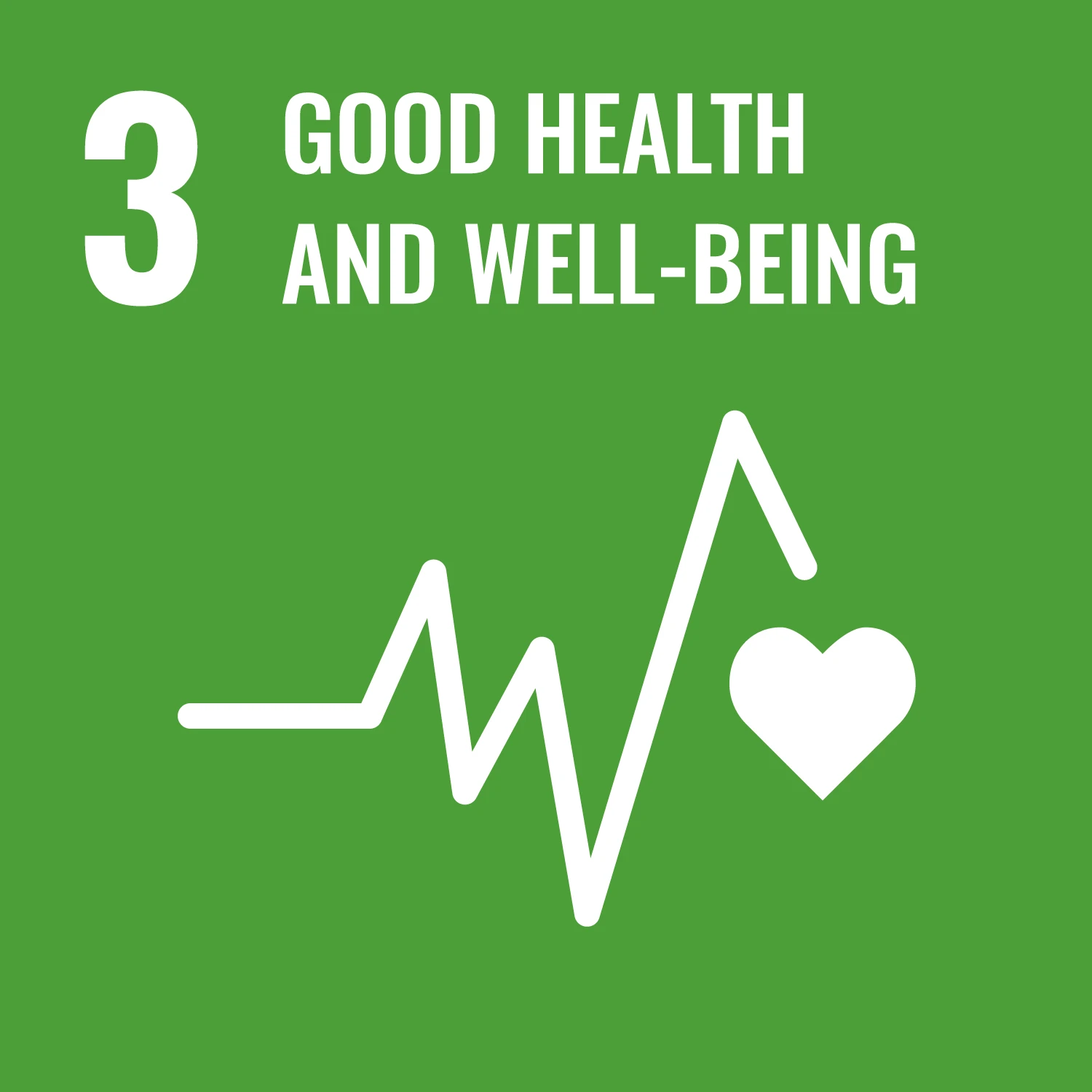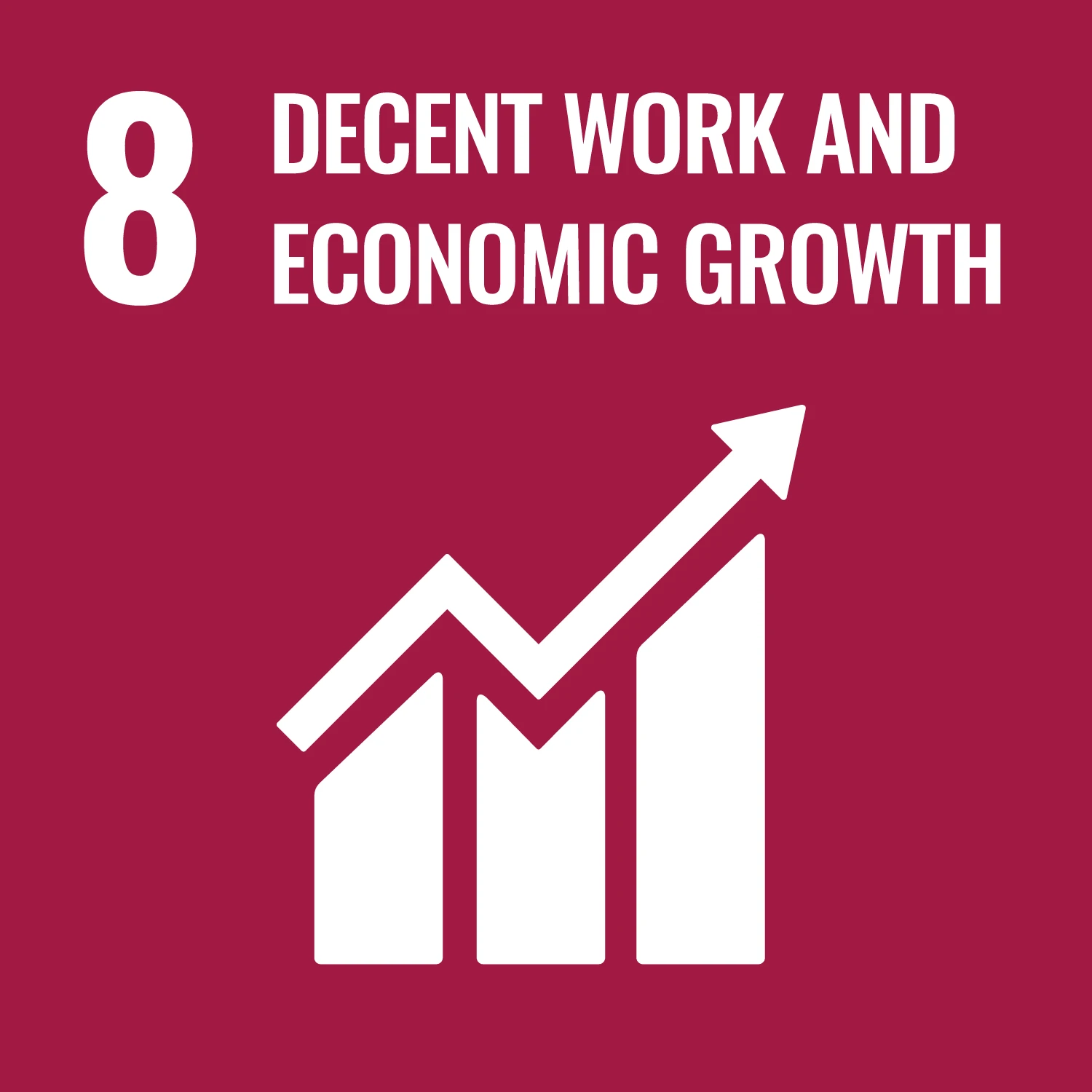About the Summer Sustainability Fellowship
The UNE Summer Sustainability Fellowship program pairs UNE students and recent UNE graduates with local municipal, business, and non-profit community partners (host organizations) to collaborate on specifically designed sustainability projects. We define sustainability broadly, using the 17 United Nations Sustainable Development Goals (SDGs) as a framework.
Each UNE fellow undertakes a full time (approximately 400 hours) challenging site-specific sustainability project over 10 weeks during the summer that includes defined deliverables. The fellow is provided a $6,800 stipend and up to three internship course credits.
UNE fellows are mentored by dedicated individuals from the host organization and advised by a program team at UNE. Host organizations and fellows co-create a work plan that guides the fellows’ work over the course of the summer, with designated tasks, duties, and deliverables that also allows flexibility to adapt as needed over the course of the project. Fellows meet weekly in small groups (four to five students in each group) organized around project themes.
These groups are led by the UNE program team and external advisors. Fellows also participate in program events (orientation, weekly professional development events for fellows, a mid-summer workshop, and a culminating showcase presentation) that are designed to encourage relationship building with other fellows, mentors, and the UNE project team.
Explore Fellowship Stories
Host a Summer Sustainability Fellow
We are currently seeking organizations in Southern Maine who are interested in hosting a UNE Summer Sustainability Fellow. If your local municipal, business, or non-profit organization is interested in hosting a fellow in the summer of 2026, please email unenorth@une.edu to receive additional information about the program and a host application. Host organization applications are due by October 31, 2025.
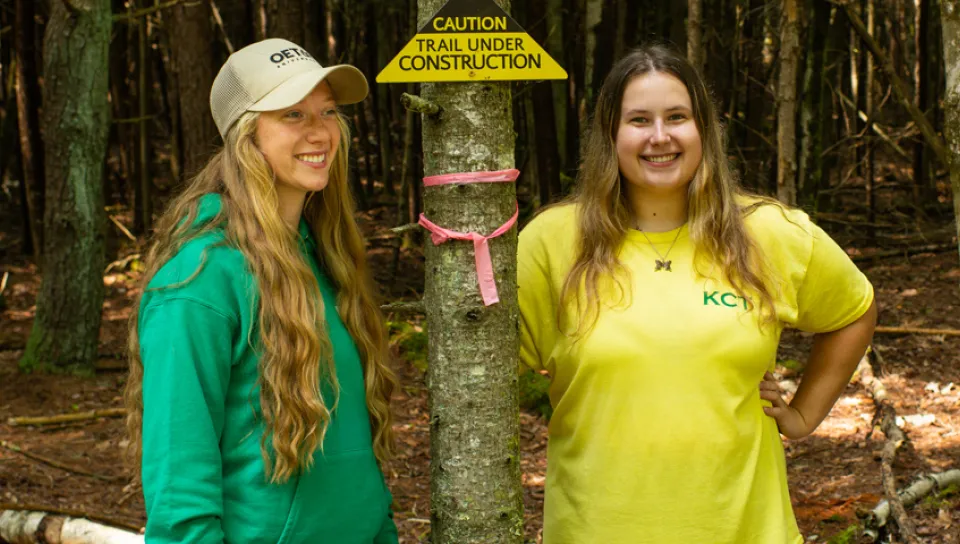
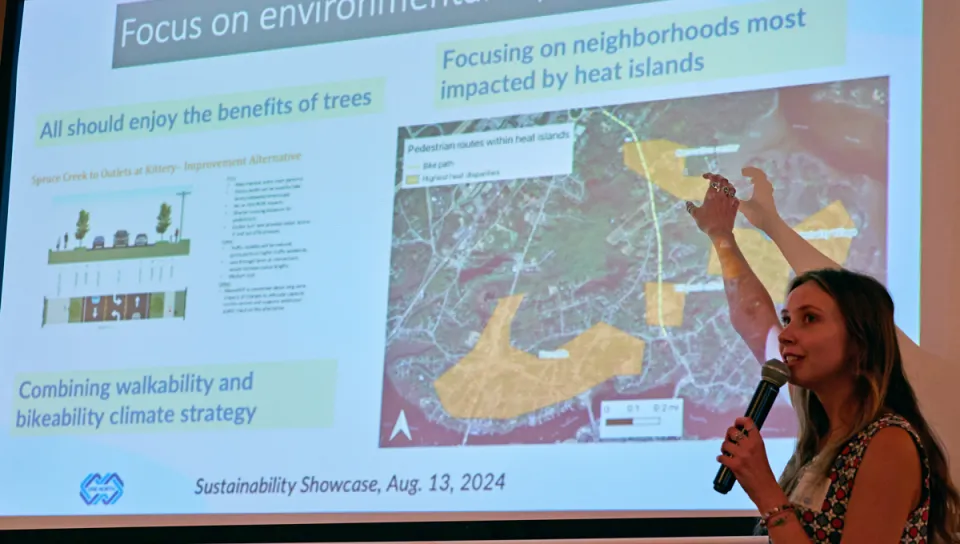
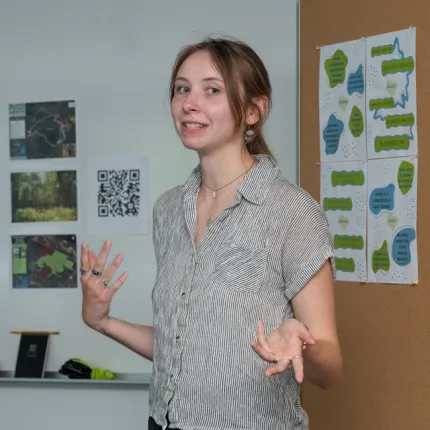
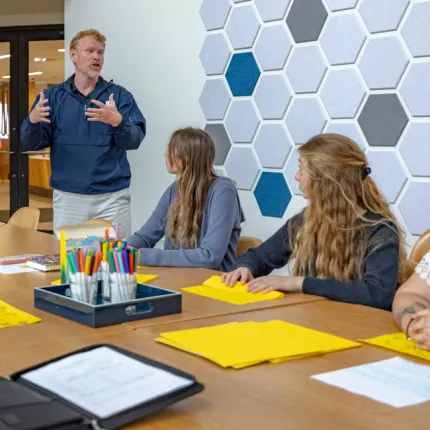
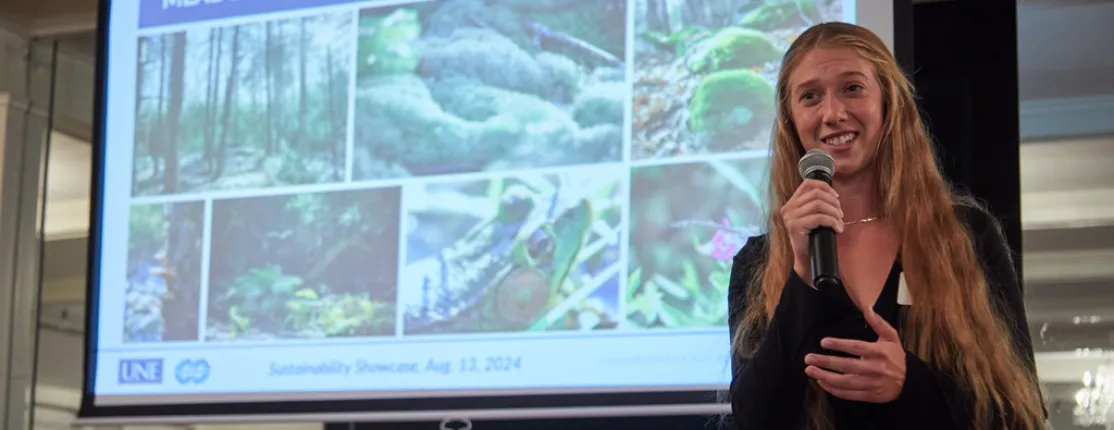
Summer Sustainability Fellowship Details and Application Information
Applications for UNE students and recent graduates interested in the 2026 fellowships will open on January 10, 2026.
Program Goals
Educating and cultivating the next generation of sustainability professionals and leaders
Fellows gain valuable experience and hone their skills as they work to apply their academic training to real-world sustainability challenges. This theory-to-practice experience provides unique professional development for the fellows that will support development of career-readiness skills and prepare them to be effective sustainability professionals and leaders.
Building more sustainable institutions and communities
UNE collaborates with host organizations to hire exceptional UNE students to serve as Summer Sustainability fellows to work on specific, well-designed, and mentored sustainability projects. Fellows are expected to make substantial progress on the specific sustainability challenge and complete a set of deliverables described in the work plan.
Building a larger and stronger network that supports and connects sustainability professionals
The UNE Summer Fellowship program is designed on principles of collaboration and shared investment of time, mentoring, and resources to develop the next generation of sustainability leaders. We expect relationships among participants, alumni, the UNE community, and host organizations will grow and evolve over time to establish a community and shared understanding of pressing sustainability challenges and how to address them at local to regional scales. Our vision is to grow into a broader network of sustainability professionals across the region that provides mutually beneficial support and enhances regional collaboration and problem solving.
Compensation, Housing, and Expectations
Compensation for Fellows
Fellows are employees of the University of New England and receive an hourly wage of $17 per hour for 400 hours of work (total of $6,800) over a 10-week period from May 29 to August 8.
For those students who are interested, the program will also cover the expense of three internship course credits.
Housing
Fellows use their stipends to pay for their own living expenses, including housing and food. Affordable residence halls on the UNE Biddeford Campus will be available for fellows over the summer if they have not made previous arrangements. The cost of the residence halls is the responsibility of the fellows.
Expectations
- Participate in program orientation at the start of the Summer Sustainability Fellowship (May 29–30).
- Commit to 400 hours of program participation over a 10 week period (from May 29–August 8), which allows time off during the fellowship term.
- Work full time with the host organization and adhering to the professional standards and practices.
- Complete project deliverables according to the work plan (with adjustments as necessary and mutually agreed upon with host organization, the fellow, and UNE program team).
- Participate in weekly advisory group meetings and in summer professional development opportunities organized by the UNE project team.
- Present results at a mid-summer workshop and final presentation event.
Application Instructions
Applications for the 2026 fellowships will open on January 10, 2026, and will close at noon on February 9, 2026. Please carefully review the instructions below before submitting your application through Handshake.
Review program information
Review the program information in the sections above, including program goals, compensation, housing, expectations, and important dates.
Explore the Sustainability Fellowship Position Descriptions
Choose one or two fellowships that are of interest and that align with your skills and background.
Prepare all of your application materials
- Cover Letter: Write a cover letter for each Fellowship you apply for (up to 2). Your cover letter should indicate exactly which project/organization you are applying for. Good cover letters express enthusiasm for the project and topic and make a clear connection between your skills and interests as well as the needs for that project.
- Resume: Prepare a resume that highlights your background relative to the fellowship(s) you are applying for.
- Reference List: List three references (academic, professional, or volunteer) who know you and are willing to discuss your specific skills, experiences, ability to work independently, collaborate, and adapt to new situations. For each reference provide their title, organization, preferred contact information (phone and/or email).
Note that letters of recommendation are not required. - Writing Sample: Submit a writing sample (one to two pages) from your academic or professional work. It is not necessary to demonstrate knowledge of relevant content, but rather this will help us gauge your skill in written communication. Select a writing sample that demonstrates your ability to communicate in a style that is most relevant to the project(s) of interest to you. Feel free to submit excerpts from longer pieces, just include an explanatory note.
Assemble Your Application Package
Submit your materials through Handshake by uploading your cover letter(s), resume, references, and writing sample. Include your first and last name in all file names.
Applications for the 2026 fellowships open on January 10 and close at noon on February 9.
Next Steps
The UNE program team will review your application shortly after February 9, 2026. Most applicants who are invited to interview for a fellowship(s) position will be contacted in February. We plan to conduct interviews during the last week of February and the first two weeks of March.
Contact
For any questions about the process, email unenorth@une.edu.
To apply for a fellowship position, please visit Handshake. Applications will close on February 9, 2026.
2026 Fellowship Opportunities
Biddeford Coastal Preservation Coalition, Biddeford, Maine
Wave Tank
About the Host Organization
The mission of the Biddeford Coastal Preservation Coalition (BCPC) is to work with the City of Biddeford, applicable state/regional agencies, and residents in coastal communities to: 1) implement and enhance Biddeford's policies and infrastructure addressing climate change; and 2) develop strategies and take action to preserve the environment and economic viability of Biddeford's coast by fostering coastal resiliency and mitigating the impact on the coastal ecosystem, including dune dynamics such as erosion and/or accumulation of our beaches.
About the Fellowship Position
The overall goal of this project is to collaborate with the UNE Gerard Marine Science Center and Dr. Will Kochtitzky to design, construct, and test a relatively small wave tank facility capable of simulating realistic coastal wave and current conditions for research, education, and design validation of coastal infrastructure. The wave tank will measure approximately 3 feet wide by 5 feet long by 2 feet deep, allowing for laboratory experiments on small beach sections similar to Biddeford shorelines. Using UNE’s Bettersize BeVision S1 particle size analyzer, the fellow will characterize sand grain sizes from local study beaches and acquire sand scaled to ¼ the natural particle size for constructing realistic artificial dunes, seawalls, and riprap. A programmable flap-type wavemaker will generate controlled waves ranging from 1 to 25 centimeters in height with adjustable periods, enabling simulation of various coastal conditions and erosion processes.
Once constructed, the wave tank will need to be tested extensively to ensure it is capable of replicating real-world conditions. If these tests are successful, the wave tank can then be used to test and compare the effectiveness of various living shoreline restoration techniques (e.g., dune grass planting, vertical stick arrays, Christmas tree/log placement, coconut fiber logs, artificial berms). Experiments will be recorded from an overhead camera for detailed analysis, student learning, and community engagement. The fellow will also describe the effectiveness of different living shoreline restoration techniques for enhancing coastal resilience in the Biddeford area.
Deliverables
- Construct a working wave tank system
- Set up scalable shoreline models via experimental test cases based on scaled shoreline models (dunes, riprap, current, storm surge, sand particles, etc.)
- Run experiments exploring the effectiveness of various living shoreline restoration techniques
- Define, establish, and implement data and analysis tools for reporting and presentations
- Host an open workshop for community members to see the wave tank in action
- Develop reports, educational and outreach materials, and presentations
Desired Qualifications
- Knowledge of sand movement, storm surge, wave action, and basic oceanography
- Skilled in construction and mechanics
- Knowledge of GIS techniques a plus
- Experience with studies on the effects of currents and storms on shorelines in Saco Bay
Location: Primarily on-site: 4–5 days per week at UNE, 1 day per week remote
Mentors: Kimberly Matthews and Jeffrey Goldsmith, BCPC Operating Committee; Dr. Will Kochtitzky, UNE
Boothbay Sea and Science Center, East Boothbay, Maine
Seaweed Farming Curriculum
About the Host Organization
The mission of the Boothbay Sea and Science Center (BSSC) is to advance sailing, boating, and ocean sciences by minimizing economic and physical obstacles and to further develop independence, self-confidence, teamwork, and volunteerism in participants. Through this work, individuals are inspired to strengthen themselves and their communities through enjoyment of the sea.
About the Fellowship Position
The objective of the fellowship is to develop a hands-on, educational seaweed farming curriculum at the BSSC that will be used by teachers in middle and high school over the 2026-27 academic year. The School Seaweed Farming Curriculum is a comprehensive, hands-on sustainability project designed to educate students on the principles and practices of regenerative aquaculture. The curriculum should be designed to enhance students’ understanding and active participation in sustainable practices while demonstrating tangible environmental, social, and economic benefits within their local community.
The environmental learning objectives focus on demonstrating how local action can address broader ecological challenges (i.e., improve local water quality, sequester carbon, enhance biodiversity, monitor ecosystem health, promote ecofriendly practices). The social learning objectives center on education, community building, and fostering environmental stewardship among students (i.e., provide experiential learning, enhance scientific literacy, build community connections, raise awareness). The economic learning objectives aim to introduce students to sustainable economic principles and green career pathways (i.e., explore sustainable commerce, demonstrate economic viability, introduce green career paths, maximize resource efficiency).
Deliverables
The primary deliverable is a Seaweed Farming Curriculum that embodies the following learning objectives:
- Educational: seaweed curriculum, student assessments(pre and post-), student projects and presentations, scientific logs and journals
- Environmental: Environmental impact report, quantifiable sequestration data, harvested seaweed
- Social and community: partnership agreements, community engagement events, educational materials, culinary exploration
- Economic: cost-benefit analysis, market research report, product prototypes
Desired Qualifications
- Knowledge of aquaculture and marine science; scientific inquiry and data analysis
- Experience with curriculum development and teaching
- Knowledge of state and local context and marine-related regulations in Maine
- Experience working with coastal communities and on the water
- Ability to collaborate, communicate, adapt, and problem-solve
Location: Primarily on-site: Boothbay Sea and Science Center, 4–5 days per week (limited housing is available); occasionally remote, 1 day per week
Mentor: Pauline Dion, President and Executive Director, Boothbay Sea and Science Center
CoastX, Kittery, Maine
Blue Economy Education
About the Host Organization
A nonprofit ocean education organization in Kittery, Maine, CoastX runs hands-on STEM, arts, and entrepreneurship programs for middle and high school students that teach environmental stewardship, spark scientific curiosity, and build skills for the blue economy. We combine experiential learning on the water with art, entrepreneurship, and engineering programs supported by real-world professionals and mentors to foster the next generation of coastal environment problem solvers.
About the Fellowship Position
CoastX’s objective for the summer is to put on six weeks of highly impactful educational programming. This includes our flagship ocean exploration remotely operated underwater vehicle (ROV) programs, an expanded arts program, and a new two-week engineering program during which students will develop and deploy their own ocean research buoy. Students will participate in a wide range of immersive activities with real-world impact while learning from subject matter experts across disciplines.
CoastX is seeking a motivated and curious college fellow to support our mission and run hands-on programs for middle and high school students that teach environmental stewardship, spark scientific curiosity, and build skills for the blue economy. As an intern, you will have the opportunity to contribute to hands-on projects that connect science, engineering, art, and innovation. You’ll work alongside our team to assist with program development and management, field activities, coastal data collection, ROV operations, educational content creation, and outreach initiatives that help make ocean knowledge accessible to students, educators, and the public. CoastX has the capability to tailor the focus of this fellowship to best suit the fellow’s individual interests.
Deliverables
- Develop 2–3 student-facing educational resources (lesson plans, activity guides, slide decks, or short videos) that support STEM, arts, or innovation learning goals
- Assist in planning and running at least 4–6 field-based learning experiences, including preparing gear, supporting safety procedures, and helping facilitate student engagement
- Collect, organize, and summarize coastal environmental data (e.g., water quality readings, shoreline observations, mapping notes) into a simple report or digital dashboard for the CoastX team
- Produce 1–2 communication pieces — such as a blog post, photo story, or short social media content series — highlighting CoastX programs, student projects, or coastal stewardship themes
- Support daily program operations, including setup and breakdown of equipment, transporting materials, loading/unloading supplies, and maintaining orderly and prepared gear stations
- Contribute to one program-improvement project, such as refining a curriculum module, improving a data-collection workflow, designing an art-science activity, or enhancing field-day logistics
Desired Qualifications
- Comfort working with middle/high school students and aboard boats near shore and offshore
- Organized and punctual (we operate 8 a.m.–5 p.m. on a precise schedule)
- Interest in working in a dynamic startup environment
- Strong writing skills and at least some experience working with scientific data
- Interest in any of the following is a plus: education, local marine ecology, arts, robotics/ocean engineering, offshore science operations, marketing/science communication, environmental issues
Location: Hybrid (1–3 days per week on-site in Kittery, 1–3 days per week remote)
Mentor: Matt Scheuer, co-founder, CoastX
Cultivating Community, Portland, Maine
Urban Agriculture Composting and Shade Systems
About the Host Organization
Cultivating Community is a food justice nonprofit located in Portland, Maine. The organization provides education, resources, and opportunities to grow and share culturally familiar food. Founded in 2001, Cultivating Community’s place-based programs prioritize people most likely to experience hunger and be excluded from access to fresh food and land, including children, immigrants, people of color, older adults, and those with limited resources.
About the Fellowship Position
This fellowship focuses on strengthening the climate resilience, functionality, and community impact of Cultivating Community’s urban gardens and community farm projects. The fellow will support research, planning, and hands-on implementation across multiple community gardens and Hurricane Valley Farm, helping expand composting systems, improve shade access, and enhance community engagement. Working closely with staff, volunteers, and gardeners, the fellow will play an essential role in designing solutions that respond directly to community needs while supporting long-term program sustainability.
This is a unique opportunity, as there is an option to extend the fellowship over the 2026-27 academic year (late August to May). Due to this year-long opportunity, the summer fellowship is only open to current juniors, sophomores, and first-year students at UNE.
Deliverables
- Design and implement improved compost systems funded through the Composting for Communities grant
- Develop shade structures to support rest, gathering, and community use in underserved neighborhoods
- Assist with community engagement initiatives to ensure adoption and long-term success of garden improvements
- Contribute to functional and climate-resilient garden spaces, enhanced shade accessibility, and improved infrastructure across Cultivating Community’s Urban Agriculture Program
Desired Qualifications
- Strong research and writing skills, with a genuine interest in sustainable agriculture, climate justice, and community-centered design
- Eagerness to engage in technical research and hands-on construction with staff and volunteers; prior agricultural or composting experience is not required.
- Ability to create clear, practical maintenance guides, particularly for Boyd Street Garden
- Collaborative and community-oriented, with comfort engaging diverse audiences and stakeholders
Location: Primarily on-site at multiple locations: 1 day at Hurricane Valley Farm, 2 days at City of Portland Community Gardens, 1 day of remote work per week; a reliable vehicle is required.
Mentor: Eva Barinas, Urban Agriculture Community Engagement Manager
Friends of Casco Bay, Portland, Maine
Seagrass Snapshot
About the Host Organization
Friends of Casco Bay works to improve and protect the health of Casco Bay. We collect scientific and observational data about the health of our waters and advocate for policies and actions that will reduce pollution to make Casco Bay and its watershed more resilient to the impacts of climate change. We are home to the Casco BAYKEEPER®, our lead advocate who acts as the eyes, ears, and voice of Casco Bay.
About the Fellowship Position
Seagrass Snapshot is a community science project designed to supplement ongoing scientific research on the decline of eelgrass in Casco Bay. Hundreds of volunteers use a smartphone app to document environmental changes. These community-generated data enhance our scientific monitoring, strengthen our advocacy, and help us tell a more complete story of the Bay’s changing conditions. The fellow will work within Friends of Casco Bay’s Water Reporter program, helping to coordinate Seagrass Snapshot by deploying 30–50 volunteers across Casco Bay during low tide events to document the presence or absence of eelgrass at designated sites.
The fellow will work closely with their mentor to identify priority beds, match volunteers to sites, ensure access, and support data tracking and event organization. They will also support volunteer coordination, ensure consistent data collection, and organize and map the results using GIS. The fellow will help analyze trends by comparing the 2026 Seagrass Snapshot with findings from previous Snapshots. The objective is to generate a high-quality, publicly useful dataset that strengthens the understanding of eelgrass distribution and informs ongoing habitat protection and restoration efforts.
Deliverables
- Coordination of several Seagrass Snapshot events
- Comprehensive GIS map of the Summer 2026 Seagrass Snapshot, incorporating all relevant Water Reporter data points layered with the Maine Department of Environmental Protection’s 2022 eelgrass map; each mapped point will include at least one photograph, accurate location, volunteer name, and relevant observational notes.
- Memo reporting on the ecological importance of eelgrass and outlining how Seagrass Snapshots contribute to ongoing research and restoration efforts in Casco Bay
Desired Qualifications
- Detail-oriented and comfortable managing datasets
- Ability to coordinate volunteers, locations, and timelines
- Strong interpersonal skills and the ability to represent Friends of Casco Bay to the public
- Experience with ArcGIS and/or Airtable helpful but not required
Location: Hybrid: 3–4 days per week in Portland, 1–2 days per week remote
Mentor: Sara Freshley, Community Organizer and Volunteer Coordinator, Friends of Casco Bay
Aligned SDGs
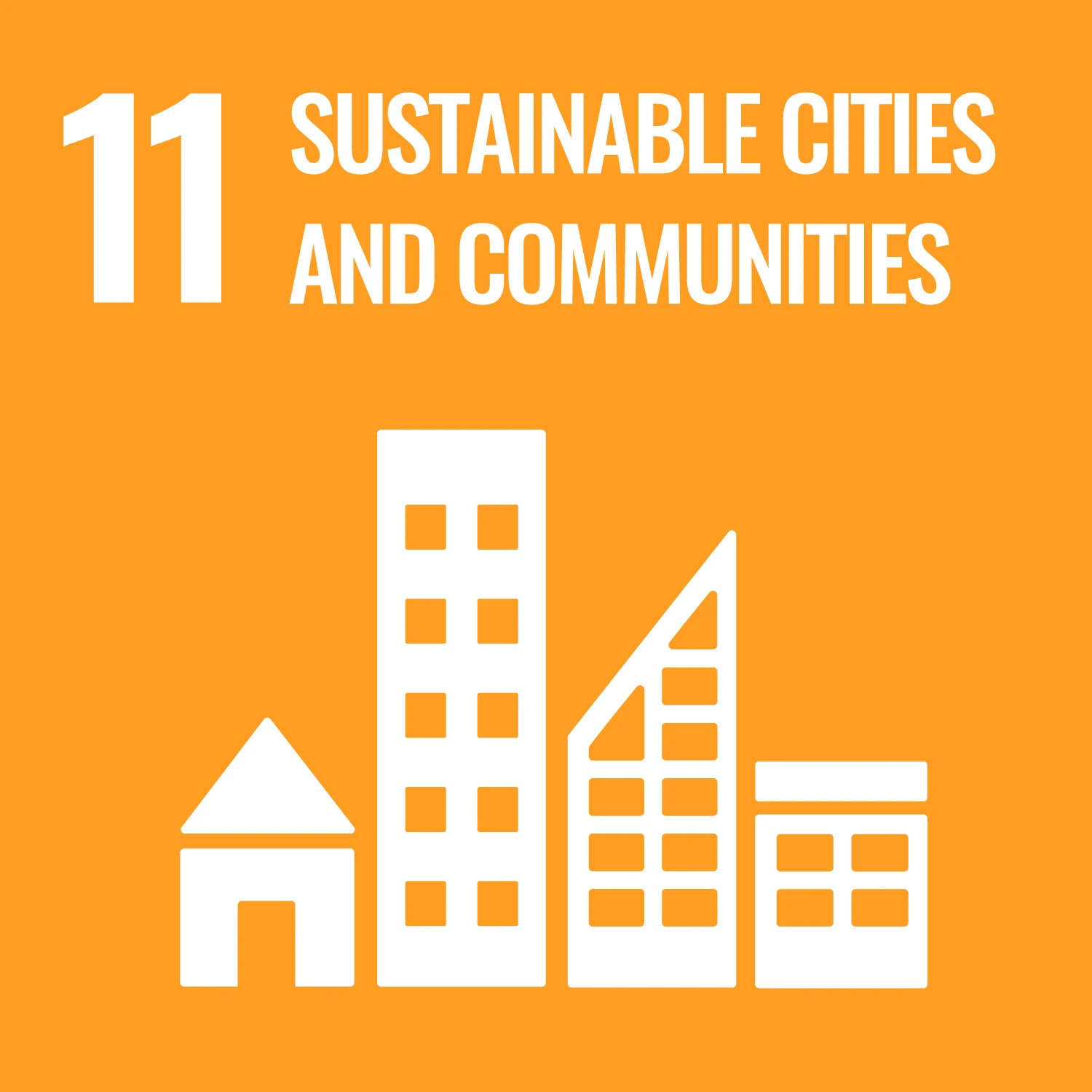
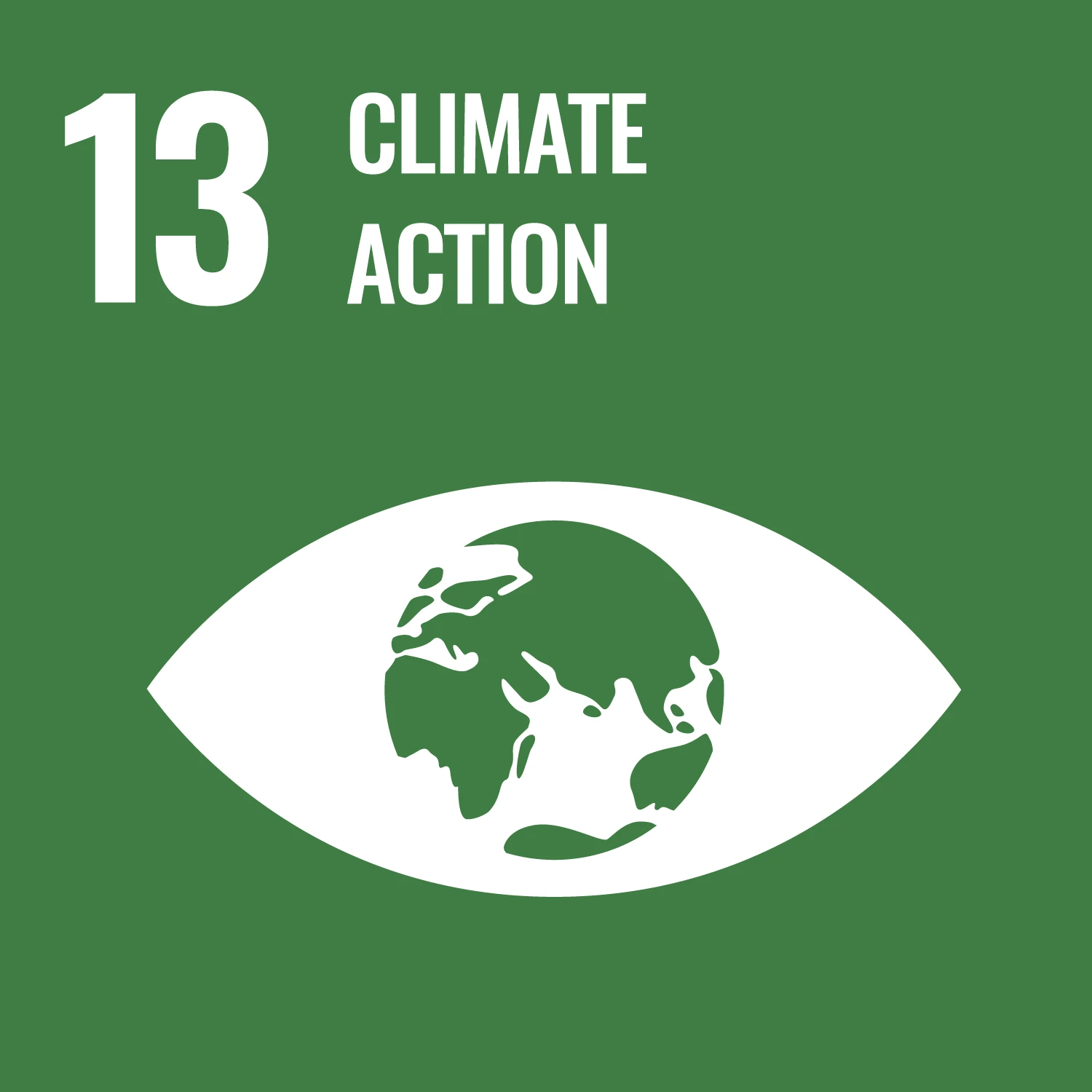
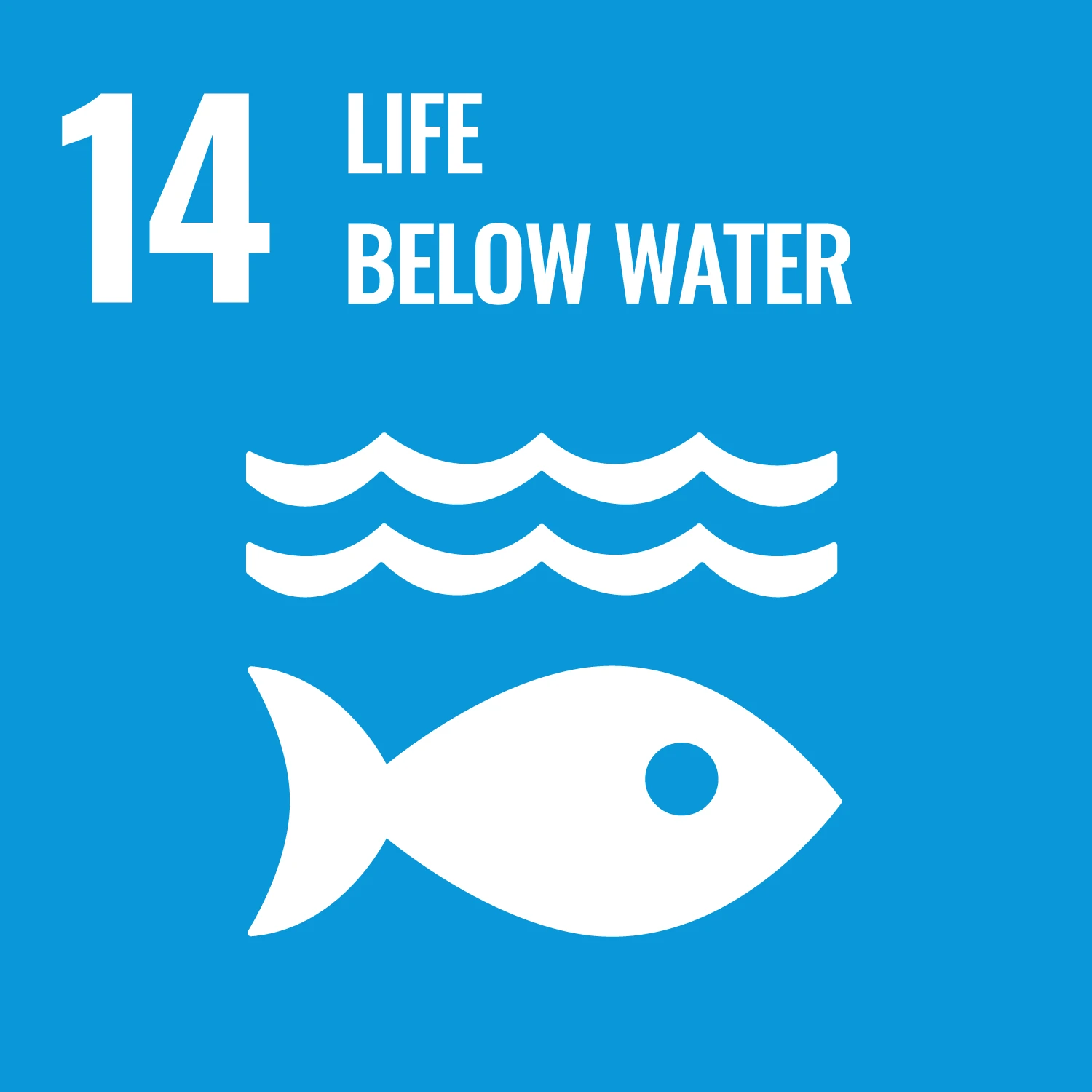
Hannaford Supermarket, Scarborough, Maine
Fresh Rescue Food Program
About the Host Organization
Hannaford Supermarkets is a leading regional grocer with 188 stores across Maine, Massachusetts, New Hampshire, New York, and Vermont. Founded in 1883, the company is committed to delivering high-quality fresh food while creating meaningful community impact through its purpose of cultivating thriving communities. Hannaford supports more than 135 community partners annually and donated over 27.6 million pounds of food to hunger-relief organizations in 2024. A major component of its hunger-relief work is the Fresh Rescue program, which directs surplus, safe-to-eat food to local food pantries, soup kitchens, and food banks. Hannaford employs nearly 30,000 associates and is headquartered in Scarborough, Maine.
About the Fellowship Position
The Fresh Rescue fellow will support Hannaford’s hunger-relief efforts by strengthening the consistent execution of the Fresh Rescue food donation program across all retail stores and testing Feeding America’s MealConnect app to enhance real-time communication and donation efficiency. Working collaboratively with store teams, local food banks, and national partners, the fellow will review and update current donation processes, identify and address gaps in existing pickup schedules, and help establish a reliable daily collection system that ensures all surplus, high-quality, and safe-to-eat food is donated. The role will also involve creating in-store communication and training materials, implementing best practices across Hannaford’s five-state service area, and managing a MealConnect test across multiple stores. Through this work, the fellow will drive increased food donation volume, reduce food waste, and help establish a program that strengthens community impact and supports potential adoption across the company.
Deliverables
- Conduct a full assessment of current food donation practices across all 188 retail locations
- Create updated donation schedules, training materials, reference documents, and in-store signage
- Implement a MealConnect test at multiple stores, including developing training content, performance indicators, and evaluation tools
- Prepare a comprehensive report for company leadership outlining pilot results, key metrics, lessons learned, and recommendations for scaling or refining the program
Desired Qualifications
- Excellent written and verbal communication skills
- Strong analytical and interpersonal abilities
- Proficiency in Microsoft Office applications
- Results-oriented with ability to work independently
- Demonstrated leadership abilities and experience with project management or coordinating multi-site initiatives
- Initiative, adaptability, and ability to collaborate effectively across diverse teams and partner organizations
- Available to work at headquarters in Scarborough with some travel within New England
Location:Hybrid: 3–5 days per week in Scarborough, with occasional visits to Hannaford stores in and around New England; 1–2 days per week remote
Mentor: Samantha Pease, Health and Sustainability Manager
Historic New England, Biddeford and York, Maine
Climate Resilient Historic Houses
About the Host Organization
Historic New England (HNE) is one of the most comprehensive independent preservation organizations in the United States. We welcome the public to 38 exceptional museums and landscapes, operate a major collections and archives center, and protect 127 privately owned historic properties in the region through a preservation easement program. We engage diverse audiences in developing a deeper understanding and enjoyment of New England home life by being the national leader in collecting, preserving, and using significant buildings, landscapes, archives, stories, and objects from the past to today.
About the Fellowship Position
Inspired by the Climate Resilient House project recently completed by English Heritage, we plan to develop an online tool that will highlight the risks and impacts historic sites across New England face due to climate change and provide historic house owners — both historic house museums and privately owned homes — with information about the risks their buildings and sites face along with suggestions and resources on what to do to reduce those impacts.
The project would involve two parts: 1) identifying the climate risks the site landscape and buildings are likely to face, now and in the future; and 2) creating a 3D rendering of the interior and exterior of one historic building (likely Sayward-Wheeler House in York, Maine) as well as the site landscape that will form the basis to create an interactive tool that would help inform the public and historic building owners regarding the climate impacts historic buildings face and information on how to make them more resilient.
The fellow would work with a team from HNE led by the Director of Sustainability and including members of the Property Care and Preservation Services teams to identify issues specific to historic homes, provide information on possible mitigation and resilience strategies, and offer resources. Our IT department will also assist with setting up the project on the Historic New England website, with a goal to make it publicly available by the end of the summer. There may also be a launch event, such as a webinar, to share the final product with HNE staff and the general public.
Deliverables
- Interactive 3D rendering of a historic New England building (inside and outside), created using photogrammetric or LIDAR data gathered by the fellow and using existing GIS software
- Information on the risks that historic buildings face, along with information on potential solutions and resources (basically a 3D story map) as well as context for the interactive 3D model
- Results presented at one of the HNE staff Past Present Future sessions (likely to include a PowerPoint slide deck and a demonstration of the model)
Desired Qualifications
- Ability to identify current and future climate risks to the site and New England in general
- Skills to scan the site and produce the 3D rendering
Location: Hybrid: Biddeford 1 day per week, York 1–3 days per week, remote 1–2 days per week
Mentor: Joie Grandbois, Director of Sustainability, Historic New England, Biddeford
International Fund for Animal Welfare, Yarmouth Port, Massachusetts
Marine Mammal Rescue and Response
About the Host Organization
The International Fund for Animal Welfare (IFAW) Marine Mammal Rescue team holds the federal authorization for all live and dead stranding responses in the southernmost portion of the Gulf of Maine. Annually, IFAW responds to an average of 67 live stranded cetaceans, which regularly accounts for over a quarter of all live cetacean strandings in the United States. This creates an ideal situation to provide for the welfare of stranding cetaceans while collecting data that helps determine the changing conditions these animals face in their environment.
About the Fellowship Position
IFAW’s Marine Mammal Rescue team leads regional efforts to respond to stranded and entangled marine mammals along the Massachusetts coast and in the Gulf of Maine. These activities provide critical information about individual animal health, ecosystem change, and human impacts on marine life. The fellow will assist in daily field operations —responding to strandings, collecting biological samples, and maintaining data records — while developing a small independent project focused on the sustainability and resilience of Gulf of Maine marine ecosystems. The goal is to connect wildlife response and conservation practice with broader themes of ecosystem health and sustainable ocean stewardship. The fellow will contribute directly to applied conservation work while learning how data from rescue events inform long-term strategies for sustainable ocean management and biodiversity protection.
The independent project will focus on analyzing retrospective and prospective veterinary diagnostic and satellite telemetry data from rescued dolphins to better inform individual health determinations and ecosystem change; the latter will directly support research at UNE in the Marine Mammals and Communities Lab. The fellow will be tasked with curating data on small cetacean movements from satellite tags to better understand post-release survival and how the changing climate is impacting habitat use. They may be involved in subsampling tissues from small cetaceans to investigate their diets and link shifts in movement to diet.
Deliverables
- Short report and presentation summarizing project findings
- Report on daily field data contributions (e.g., stranding response, necropsy, or sampling data)
- Educational materials that connect marine rescue work to individual and ecosystem health
- Short reflection linking their experience to sustainability goals in marine conservation
Desired Qualifications
- Background or strong interest in marine biology, environmental science, or animal welfare and health
- Comfort working outdoors and in dynamic, sometimes physically demanding field conditions
- Strong organizational and communication skills
- Previous experience with animal handling, data collection, GIS, or outreach helpful
- Enthusiasm for marine wildlife conservation, collaborative mindset, and willingness to learn
Location: Primarily on-site in Yarmouth Port, MA, 4–5 days per week
Mentor: Brian Sharp, Director, Marine Mammal Rescue, IFAW
Kennebunkport Conservation Trust, Kennebunkport, Maine
Native Plant Seed Bank
About the Host Organization
The Kennebunkport Conservation Trust (KCT) preserves and stewards land to learn from its ecology and history, protect and restore its diverse habitats, and be inspired by its natural beauty. We connect people with nature through education and experience.
About the Fellowship Position
The sustainability fellow will assist the KCT in transforming a run-down garden into a living seed bank that will provide native plants and seeds to other KCT holdings, the Kennebunkport community, and beyond. KCT has an optimal space on one of its holdings to host a variety of native plants that could help us fulfill our mission of protecting and restoring Kennebunkport’s diverse habitats. Specifically, we aim to enhance the Patsy Bray Mahoney Pollinator Meadows at Meadow Woods Preserve, which has been an ongoing effort since 2023. A living seed bank can fulfil the needs of Meadow Woods Preserve as well as other KCT holdings and the wider community who wish to create pollinator pathways themselves.
The fellow may engage with local nurseries and gardens as well as our own gardens while working closely with KCT’s Property Steward to create a space that can host native plant species throughout their entire life cycles. They’ll ensure that this newly created space is properly managed over time by writing a management plan that outlines the best times to plant and harvest seeds as well as the best way to store them. This living seed bank will not only enhance the habitats around us but also provide the opportunity to engage community members in helping us do so.
Deliverables
- Design a plan for a seed bank garden that considers location and circumstances such as wildlife and watering mechanisms
- Write a management plan for a living seed bank outlining when seeds should be planted and harvested, plus best seed storage practices
- Create a list of suitable native species with details about each species, including preferred habitat, time of bloom, and associated pollinators
- Write a management plan for the Patsy Bray Mahoney Pollinator Meadows
Desired Qualifications
- Strong communication skills (written, verbal, and listening)
- Ability to work both independently and collaboratively
- Strong research skills, including gathering information from professionals, online sources, and literature
- Solid understanding of southern Maine’s ecology, knowledge of pollinators and how to best support them, and the ability to create scaled design plans
Location: Hybrid: Kennebunkport 3–4 days per week, remote 1–2 days per week
Mentor: Juliann Lapierre, Property Steward, KCT
Kennebunkport Oyster Company, Arundel, Maine
Sustainable Aquaculture Market Analysis
About the Host Organization
Kennebunkport Oyster Company (KPTOC) is an oyster farm and ecotourism company entering its third year in operation and approaching its first harvest and tour season in 2026. KPTOC believes in coexisting with nature and cultivating oysters to prioritize quality and sustainability. Beyond growing oysters, KPTOC strives to bring people together and inspire a deeper appreciation of working waterfronts and healthy oceans by nurturing community, engaging young people through education, and offering memorable experiences for adults.
About the Fellowship Position
Kennebunkport Oyster Co. is seeking to expand its impact within Maine’s sustainable aquaculture and coastal economy. KPTOC is looking to strategically diversify operations to create more stable, year-round revenue streams.
The objective of this project is to assess and develop strategic opportunities for KPTOC to expand beyond its core oyster farming and ecotourism operations. The fellow will conduct comprehensive market analyses to evaluate diversification options — such as electric seafood distribution, seafood catering, and ergonomic oyster tools — and create actionable business plans for the most promising ventures. They will also develop draft business plans and implementation strategies for high-potential ventures. This project offers hands-on experience in sustainable business planning, aquaculture market research, and community-based enterprise development while directly contributing to a real-world sustainability initiative in Maine’s working waterfront sector.
Deliverables
- Market analysis report: comprehensive evaluation of the electric seafood distribution, seafood catering, and ergonomic oyster tools markets, including customer segments, trends, competitors, and regulatory considerations
- Customer and stakeholder insights: profiles of target customers, industry partners, and community needs to inform strategy and identify collaboration opportunities
- Initial investment summary: estimated startup costs, resource requirements, and potential funding strategies for each business opportunity, with a clear view of financial needs to launch
- Diversification strategy and business plan(s): feasibility assessment and prioritized recommendations for each viable business (to be selected after the above assessment deliverables are presented), with draft business plan(s) detailing operations, marketing, product development, and financial projections
- Presentation and implementation road map: clear, visual summary of findings, recommended next steps, and guidelines for executing selected business opportunities beyond the fellowship
Desired Qualifications
- Knowledge of/field of study in sustainability and business
- Interest in/knowledge of aquaculture industry
- Familiarity/experience with market analysis methodologies (SWOT, Porter’s Five Forces, PESTLE, Blue Ocean Strategy, ROI and Cost-Benefit Analysis, and demand forecasting)
- Strong analytical skills
Location: Primarily remote (4–5 days per week), Kennebunkport up to 1 day per week
Mentor: Anna Gallerani, owner, Kennebunkport Oyster Company
Wells Reserve at Laudholm and Laudhom Trust, Wells, Maine
AI Enhanced Communications
About the Host Organization
The Wells Reserve at Laudholm has been a 2,300-acre science, education, and conservation center on the coast of southern Maine since 1984. This national estuarine research reserve is supported by the National Oceanic and Atmospheric Administration and locally by the nonprofit Laudholm Trust.
About the Fellowship Position
The Reserve’s nonprofit arm, Laudholm Trust, will work with a UNE Sustainability Fellow on a pilot project to expand our science communications, donor engagement, and data analysis capacity through the development and responsible use of artificial intelligence (AI) tools. This project will directly advance the Wells Reserve’s mission by expanding communications capacity to better connect visitors, volunteers, donors, and the broader public; resting and refining AI-supported strategies to engage new audiences; and supporting marketing efforts to ensure continued funding.
This fellowship will provide hands-on experience in nonprofit marketing and fundraising communications while allowing the Wells Reserve to experiment responsibly with emerging technologies to strengthen event promotion, donor outreach, community engagement, and data analysis. What makes this internship unique is our intentional focus on AI-driven efficiency and professionalization. By employing an intern trained to apply AI responsibly, we will be able to: 1) reformat program and event descriptions for multiple platforms with significantly less duplication of effort; 2) use AI-assisted tools for data analysis and content personalization; 3) produce professional and polished communications more quickly; 4) equip both the fellow and our nonprofit with leading-edge skills that will remain valuable beyond the duration of the fellowship; and 5) document and share “better practices” developed through this pilot project with 29 other [understaffed] national estuarine research reserves across the country.
Deliverables
- Reformat program and event descriptions (including visuals) for multiple platforms (social media, email, newsletter, press releases, web articles) using AI tools
- Track engagement with analytics dashboards and recommendations for improvement
- Generate tailored messaging for individual supporters using AI tools
- Prepare personalized stakeholder updates summarizing program reports using AI tools
Desired Qualifications
- At least intermediate-level comfort and facility with existing AI tools, including large-language models, image generators, and tool development platforms
- Ready willingness to experiment, fail, reconsider, reflect, and document the process
- Sense of humor and curiosity both essential
- Environmental studies, sustainability knowledge, analytical mindset, and love of nature all helpful
Location: Hybrid: 3–4 days per week at Wells Reserve, 1–2 days per week remote
Mentor: Rachel McDonald, Communications Director, Laudholm Trust, Wells, Maine
Maine Timber Research and Environmental Education, Arrowsic and Augusta, Maine
Forest Management
About the Host Organization
Maine Timber Research and Environmental Education Foundation (TREE) provides Maine communities with accurate information about the state’s forest resources by delivering programs that increase the public’s awareness of Maine’s forests. Ecosystem monitoring research at our Holt Research Forest (HRF) in midcoast Maine has trained more than 100 students and early-career professionals. Our programs engage a diverse audience to promote forest-based careers and forest stewardship.
About the Fellowship Position
Oak-pine forests are an ecologically and economically significant forest type in the Northeast United States that are vulnerable to climate change and other stressors. Along the coast, oak-pine forests face additional challenges, including sea level rise, saltwater intrusion, and storm surges, which negatively impact forest health and regeneration. To address these challenges, HRF is developing a new 10-year forest management plan (2027–2037) that focuses on sustainable forestry practices, ecological restoration, and long-term research objectives. The plan will integrate current scientific understanding with adaptive management strategies to enhance biodiversity, improve forest health, and ensure the continued viability of HRF as a living laboratory. Key components will include a climate change vulnerability assessment, invasive species management, and wildlife habitat enhancement.
The Sustainability Fellow will support the forest management plan by developing a climate vulnerability assessment through a synthesis of existing HRF data, an evaluation of climate exposure, and an assessment of species and habitat sensitivity. Activities will include summarizing long-term ecological monitoring data, mapping potential climate stressors in GIS, reviewing literature on species-level vulnerability, and drafting a concise summary of findings. The fellow will also assist with developing visual materials and a short report for use in management planning and outreach.
Deliverables
- Written report detailing methods and findings
- Recommendations for sustainability initiatives to be included in the management plan
- Presentation of results and management implications to HRF lab members/Maine TREE staff
Desired Qualifications
- Background or strong interest in forest ecology and management
- Analytical skills, including data management, statistical analysis, and data visualization
- Experience with R, Python, Excel, or other software/language
- Strong written and verbal communication skills
- Ability to work independently and collaboratively with Maine TREE staff/HRF lab members
Location: Hybrid: Holt Research Forest in Arrowsic, 3–4 days per week, remote 1–2 days per week
Mentors: Paulina Muray, Research Manager, Maine TREE
Saco Watershed Collaborative, Biddeford, Maine
Nature-Based Solutions
About the Host Organization
The Saco Watershed Collaborative is a network of over 130 partners working together to protect the resources within the Saco Watershed more effectively. The group provides communication opportunities and systems to share resources, facilitate educational events, and support the ongoing work of partners.
About the Fellowship Position
The Saco Watershed Collaborative is currently involved in multiple projects related to nature-based solutions in the watershed. This fellowship project will focus on providing customized outreach to municipalities throughout the watershed, focused on highlighting opportunities for nature-based strategies to protect resources and habitat for climate adaptation. The objectives of the project include building relationships with diverse municipalities; assessing their existing capacity related to nature-based solutions and climate adaptation; designing outreach materials on nature-based solutions such as living shorelines, rain gardens, and grassland habitat conservation; and aligning outreach with state/town climate action plans.
The fellow will work with the project team to design surveys and interviews to be conducted with diverse municipalities throughout the watershed utilizing approved Institutional Review Board (IRB) procedures. Next, the fellow will work with mentors to conduct interviews and/or surveys, analyze the data, and develop a report of overall findings and provide specific recommendations for each participating municipality. If resources allow, the fellow may work with towns to create more awareness through events or support the development of specific nature-based solution projects. The Saco Watershed Collaborative is currently involved in multiple projects related to nature-based solutions in the watershed. The Sustainability Fellow will be able to participate in this work and connect these existing resources to this project.
Deliverables
- Several municipal surveys and interviews (designed and conducted by the fellow) focused on learning about each town's knowledge, needs, and existing projects/assets related to watershed resources, nature-based solutions, and climate adaptation
- Analysis of data from municipal surveys and interviews
- Development of overall findings report with targeted section for each municipality to support implementation of future nature-based solutions, with specific recommendations
Desired Qualifications
- Strong and effective communication skills with diverse audiences
- Strong presentation skills
- Experience or desire to learn environmental outreach and qualitative data collection and analysis
- Prior knowledge of nature-based strategies, climate adaptation, and watershed conservation helpful but not necessary
- Prior experience conducting surveys or interviews or developing outreach material desirable but not necessary
Location: Hybrid: Saco River Watershed and UNE 1–2 days per week, remote 3–4 days per week; potential need to travel long distances within watershed; mileage will be reimbursed, reliable transportation needed
Mentors: Kelsey Johnson, Saco Watershed Collaborative; Jennifer Brosseau, UNE, Biddeford, Maine
SOS Saco Bay, Saco, Maine
Saco Bay Bathymetry
About the Host Organization
Save Our Shores (SOS) Saco Bay seeks to bring everyone together to work responsibly to make our coastlines more resilient and sustainable. Our vision is to utilize technology, research, and data to propose and support responses to the erosion and damage that has been tearing at our shorelines. We back education, grant requests, and government initiatives that create opportunities to build back beaches and the abutting lands and structures.
About the Fellowship Position
Beach erosion remains a significant issue in Saco Bay. This project seeks to map the bathymetry of selected areas in Saco Bay and combine that effort with dune mapping and sediment sampling. The primary objective is to create a plan to utilize bathymetric data to inform beach management and other historical reporting. Another objective will be to inform the design of a UNE wave tank that we can use to model coastal processes.
The fellow will primarily focus on making bathymetric measurements of Saco Bay from Biddeford to Scarborough along pre-determined transects with UNE’s Bathycat (single beam echo sounder) and Bathymetric Lidar. We will compare these observations with existing data from NOAA and UNE of topography (dunes) and previous bathymetry work. The fellow will also collect sediment samples across Saco Bay for analysis with UNE’s grain particle size analyzer. We will pay specific attention to Camp Ellis and the site of the proposed spur jetty, which could be under construction in 2026. The plan is to analyze data and determine ocean depth, sand movement, and factors that cause the sand movement. This will inform the design of a UNE wave tank, which will be used to test potential attenuation solutions (such as the spur jetty). We will also be able to create new datasets that can be used to track changes in the bathymetry of the ocean floor, which is valuable to coastal communities looking to manage and engineer beaches. The ability to track change or stability will go a long way in helping communities take action to maintain sand levels.
Deliverables
- Produce bathymetric maps of Saco Bay
- Compare new bathymetric maps of Saco Bay with previous maps from NOAA and UNE
- Report on methods, results, and conclusions drawn from the research, including plans for future studies
- Collaboration with wave tank project
Desired Qualifications
- Passion for research and experience in GIS
- Licensed drone pilot; experience with the bathymetry boat data collection (or strong desire to learn quickly)
Location: Hybrid: 2–3 days per week in Saco Bay, 1–3 days per week in lab interpreting data
Mentors: David Plavin, Vice President, SOS Saco Bay; Dr. Will Kochtitzky, UNE
Scarborough Land Trust, Scarborough, Maine
Invasive Species and Water Quality
About the Host Organization
The Scarborough Land Trust (SLT) currently owns and manages ~1,800 acres in a series of preserves open to the public 365 days per year. The organization maintains over 12 miles of trails and manages land for natural resource protection, wildlife habitat, and public access. SLT coordinates partners on planning and implementing strategies to restore and build resiliency in the Scarborough Marsh. SLT also works to connect individuals to the natural and agricultural world by creating and offering a variety of programs, workshops, and experiences. In addition, SLT works with organizations, schools, and businesses to offer experiential volunteer workdays to help maintain natural areas for the benefit of people and wildlife.
About the Fellowship Position
The fellow will spearhead the development and implementation of two projects: invasive species management practices (land), and water quality and blue crab monitoring (water). For the invasive species project, the fellow will map and track the treatment of buckthorn and Japanese knotweed and develop a sustainable, long-term treatment plan. They will also manage volunteers, maintain established relationships with contractors, and support the creation of public education materials related to the control of these invasive species.
Water quality issues include elevated bacteria, which come from fecal matter (e.g., sewage) and frequently halt the harvest of softshell clams from marsh mudflats. Nutrient enrichment from surrounding urban green spaces is another concern, as this negatively impacts marsh health and can lead to eutrophication. To ensure long-term health for the Scarborough Marsh, water quality needs to be monitored in strategic locations to assess mitigation steps and structure management plans. In addition, blue crabs may impact the food web in Maine’s tidal marshes in poorly understood ways, potentially damaging populations of other marsh species. The fellow will monitor blue crab populations using our previously established framework. They will also assist in communicating the findings to the community, the town of Scarborough, and federal, state, and local agencies.
Deliverables
- Map and detailed management plan for buckthorn and Japanese knotweed for all properties
- Train a core group of volunteers to implement control practices on an ongoing basis
- Remove invasive species in high-priority habitats like wetlands and vernal pools
- Share results of blue crab monitoring with Manomet and Town of Scarborough (including a poster and presentation)
- Collect and analyze water quality data and share the results with the town (format TBD)
Desired Qualifications
- Basic science background with focus in ecology, marine biology, or environmental studies
- Ability/desire to work outside in natural areas, regardless of weather conditions
- Motivation/ability to move equipment and tools over various distances across uneven terrain
- Good communication skills and the ability to work independently as well as in a team setting
Location: Primarily on-site: Scarborough, 5 days per week, with occasional remote days
Mentors: Sami Wolf, Stewardship Director, SLT; Therese Lamperty, Marsh Scientist and Restoration Director, SLT
Scarborough Land Trust, Scarborough, Maine
Sustainability Communications
About the Host Organization
The Scarborough Land Trust (SLT) currently owns and manages ~1,800 acres in a series of preserves open to the public 365 days per year. The organization maintains over 12 miles of trails and manages land for natural resource protection, wildlife habitat, and public access. SLT coordinates partners on planning and implementing strategies to restore and build resiliency in the Scarborough Marsh. SLT also works to connect individuals to the natural and agricultural world by creating and offering a variety of programs, workshops, and experiences. In addition, SLT works with organizations, schools, and businesses to offer experiential volunteer workdays to help maintain natural areas for the benefit of people and wildlife.
About the Fellowship Position
The overall goal of this project is to build stronger connections with the community through an effective communications program. The project will focus on improving how SLT engages with the public and specific stakeholder groups through strategic, sustainability-focused communications. This includes assessing current outreach efforts, identifying gaps, and developing new materials and strategies that highlight the land trust’s work in conservation, climate resilience, and community engagement. The fellow will work closely with a mentor and collaborate with staff to ensure messaging aligns with UN Sustainable Development Goals (SDGs), particularly Sustainable Cities and Communities, Climate Action, Life on Land, and Peace, Justice and Strong Institutions. The project will culminate in a suite of communication deliverables that support long-term impact and can be adapted for future use. Specific objectives include: 1) enhancing public understanding of the land trust’s mission and conservation efforts through strategic communications; 2) developing targeted outreach strategies for key stakeholder groups; 3) aligning communications with relevant UN Sustainable Development Goals; and 4) creating replicable communication tools and templates for future use.
Deliverables
- Communications audit and stakeholder engagement analysis
- Set of outreach materials (e.g., brochures, social media content, infographics) tailored to different audiences
- Handbook for guidelines related to electronic communications
- Communications strategy document aligned with UN SDGs
- Final report and presentation summarizing project outcomes and recommendations for future communications work
Desired Qualifications
- General understanding and experience in the use of social media platforms, general computer use, video editing, and similar skills useful
- Excellent writing and communication skills
- Knowledge of UN Sustainable Development Goals
Location: Hybrid: Scarborough 2–3 days per week, remote 2–3 days per week
Mentor: Jennifer Fries, SLT Office Manager, Scarborough
shell+crab, York, Maine
Eating Our Invasives: Green Crab Research
About the Host Organization
Shell + claw is a start-up company based in York, Maine, focused on creating viable culinary markets for the invasive European green crab (Carcinus maenas). The organization has concentrated on developing methods to cultivate soft-shell green crabs for commercial sale. With four seasons of molting experience, shell + claw is currently the only company to successfully molt commercial quantities of soft-shell green crabs, supplying nine restaurants and one seafood wholesaler.
About the Fellowship Position
Each season, a significant number of appropriately sized male green crabs (45–65 mm) do not display the morphological “halo” that indicates proximity to molting at the time of harvest. Although biologically capable of molting later in the season, these “right size, wrong time” crabs are typically sold into the bait market for minimal value.
The goal of this fellowship project is to improve the efficiency and economic viability of soft-shell green crab production by investigating the molting potential of these underutilized crabs. The project will evaluate whether male green crabs lacking the halo cue can successfully progress to ecdysis when held under controlled conditions. If successful, this work could extend the soft-shell green crab season into mid-July by converting low-value bycatch into a premium seafood product, significantly strengthening the economic sustainability of the fishery.
Approximately 2,500 “right size, wrong time” male green crabs will be retained and studied to assess the reliability and timing of molting later in the season.
Crabs will be housed in 240 oyster bags placed within six-bag bottom cages on a one-acre aquaculture lease. Bags will be stocked at three different densities (5, 10, and 15 crabs per bag) and provisioned with small mussels and natural fouling as food sources. Crabs will be checked weekly from mid-June through early July for progression toward molt. Individuals showing a halo cue will be transferred to crab condos and monitored every three days until molting. Molt success rates will be compared across stocking densities.
Deliverables
- Implement a detailed experimental study design
- Document time and effort associated with operating a soft-shell green crab farm, including fishing, sorting, harvesting, and distribution
- Produce a final written report and slide presentation summarizing study findings and evaluating the economic viability of retaining “right size, wrong time” crabs
Desired Qualifications
- Ability to lift traps and crab crates weighing up to 80 pounds
- Basic boat handling and seamanship skills
- Experience or interest in experimental design, data collection and analysis, and scientific writing
- Strong communication skills
Note: Preference will be given to fellows who are able to commit some time prior to the official June 2 start date to become familiar with shell + claw’s green crab fishing and pre-molt identification practices.
Mentor: Michael Masi, Co-owner, shell + claw
Location: Primarily on-site in York, Maine
Shy Beaver Trout LLC, Hollis, Maine
Insect Cultivation
About the Host Organization
Shy Beaver Trout hatchery is a trout farm that has been in business since the late 1800s and is the last private outdoor hatchery in the state of Maine. Our primary activity is stocking live trout in private ponds throughout the state. We also provide fresh trout to restaurants across the country. We raise rainbow, brook, and brown trout all year round. The hatchery is a flow-through facility, which allows us to achieve the best fish quality. Our goal is to make the operation as sustainable as possible, aiming to be close to a permaculture loop.
About the Fellowship Position
The list of insects that trout feed on in the wild is long: earthworms, mealworms, fly larvae/maggots, black soldier fly larvae, ants, slugs, crickets, freshwater snails, crayfish, leeches, minnows, and tadpoles. However, which ones will be best suited for farming? A range of criteria should be considered to answer that question, including growth and reproduction rates, dormancy period, food, habitat, labor requirement, and whether the trout will eat them. The objective of this fellowship is to identify and grow a variety of insects and aquatic species at the farm (using sustainable materials) to supplement the diet of our large trout and replace the diet of our fingerlings.
The fellow will create the best habitat to grow these species, with natural habitats favored. They will then trap or buy the insect species of interest, place them in their new habitat, and experiment on how to make them thrive and reproduce rapidly. While they grow, the fellow will research how best to harvest, estimate yield, and quantify the labor required. The mentor will be available to assist and advise through all stages of the project.
Deliverables
- Short report (with references) listing the insects and aquatic species that are promising candidates based on a set of detailed criteria, including a short list of five best-suited species
- Experimental design and field-testing growth of the five best-suited species
- Manual on how to grow each species (feeding, harvesting, reproduction cycle, etc.)
- Habitat prototype for each species (grow bed, tank, net pen, etc.)
- Labor and yield estimate per pound of feed produced
- PowerPoint presentation summarizing the project and key findings
Desired Qualifications
- Solid understanding of insect and aquatic species biology (e.g., life cycle, temperatures, diet, reproduction)
- Excellent research and experimentation skills
- Excellent critical thinking skills and complex decision-making processes
- Interest in working with fish
- Hands-on experience with building and innovative thinking
Location: Hybrid: Hollis 4–5 days per week, occasionally remote 1 day per week
Mentor: Andy Ces, owner/operator, Shy Beaver Trout LLC, Hollis, Maine
Town of Kennebunk, Kennebunk, Maine
Blueberries to Beaches Trail
About the Host Organization
The Town of Kennebunk is home to nearly 12,000 year-round residents and is no stranger to visitors, with a longstanding reputation for conservation and nature-based economic development. The local government also has a history of embracing sustainability. The town has recently recommitted to an eco-friendly future with an updated Comprehensive Plan (2022) and Kennebunk Climate Action Plan (2024), which both prioritize active recreation and sustainable land use.
About the Fellowship Position
The goal of the broader project is to develop a continuous non-vehicular route that connects Kennebunk’s three villages and allows residents and visitors to walk to the sea from anywhere in the town. The project will seek a route that connects conserved lands and active recreation assets, provides access and mobility to promote public health, and highlights some of the town’s scenic vistas while connecting some of its best-known destinations.
The fellow will be part of a broader collaborative effort working on this ambitious but achievable public goods project. Town staff from multiple town departments (Recreation, Planning, and Public Works) will join specialist town committee volunteers (Economic Development, Conservation, and River) and local nonprofits (Kennebunk-Kennebunkport-Arundel Chamber of Commerce, Eastern Trail Alliance, Kennebunk Land Trust) to take a long-sought dream of locals and specific planning steps to eventually make the trail a reality.
The fellow will join this effort in the early development phase. Key questions about environmental feasibility, technical requirements for trail construction, and a funding development strategy are all efforts the fellow can engage in. Kennebunk seeks case studies from other communities that have succeeded with similar trails to expedite its own work.
Deliverables
The fellow has the opportunity to contribute to different aspects of the project, including:
- Assessing route alignments to narrow the options based on key criteria
- Recommending ways to blend function with character by using local plantings, public art, landscaping, and wayfinding to make the trail a destination, not just a path
- Exploring the policy issues related to environmental impacts, permitting, and land costs
- Identifying public funding and grant opportunities to support sequenced phases of the plan
- Engage key stakeholders and share the vision publicly to build community support
Desired Qualifications
- Core competency at the intersection of sustainable development and project management
- Experience in recreational design and the ability to “read the land” (clinometry and hydrology), identifying positive and negative control points
- Knowledge of GIS analysis, solid communication skills, and the ability to collaborate
- Familiarity with some of the following: community development, age-friendly planning, grant writing, public engagement, land use regulations in Maine, multi-use infrastructure planning
Location: Hybrid 2–3 days in Kennebunk, 2–3 days remote
Mentor: Stephen Houdlette, Director of Economic Vitality, Town of Kennebunk
University of New England, Biddeford, Maine
Lake Bathymetry and Fish Habitat
About the Host Organization
The University of New England (UNE) is a private university with a strong focus on environmental and marine sciences. UNE trains the next generation of environmental leaders through hands-on research and community engagement.
About the Fellowship Position
Many Maine lakes have outdated bathymetric data from the 1950s–1970s, which hinders effective fisheries management. Cold-water species such as brook trout, Arctic charr, and landlocked salmon depend on deep, cool, oxygenated waters. This project will use UNE’s bathymetric sonar and temperature profiling tools to survey four priority lakes in southern Maine.
This project aims to update bathymetric and thermal data for Bald Mountain Pond, Long Pond, Enchanted Pond, and Tea Pond to support fisheries conservation and management. Using UNE’s BathyCat (a remote-controlled sonar-equipped vessel) and temperature profiling tools, the fellow (in collaboration with UNE faculty Will Kochtitzky and Greg LaBonte) will gather data and generate high-resolution maps to identify critical cold-water fish habitats and inform conservation strategies. If time allows, the fellow may expand their scope to other bathymetry mapping projects in coastal Maine and/or additional lakes.
The data collected will be processed into GIS-based bathymetric and thermal maps that will be shared with the Maine Department of Inland Fisheries and Wildlife (DIFW), Trout Unlimited, and other stakeholders to guide habitat protection and management decisions. The fellow will receive training in field methods and GIS, building on their previous GIS experience.
Deliverables
- High-resolution bathymetric and thermal maps for Bald Mountain Pond, Long Pond, Enchanted Pond, and Tea Pond in southern Maine
- GIS datasets for use by DIFW and other stakeholders
- Publicly accessible data hosted on Digital UNE
- Final report and presentation summarizing findings
Desired Qualifications
- Background in environmental or marine science, with experience/coursework in GIS and field data collection
- Familiarity with sonar or remote sensing tools a plus
- Strong analytical skills and the ability/desire to work in remote outdoor settings essential
Location: Primarily on-site in southern Maine and at UNE: 4–5 days per week; occasionally remote 1 day per week
Mentor: Will Kochtitzky and Greg LaBonte, UNE faculty
Learn About the Fellowship Experience
Important Dates
Fellowship Timeline and Deadlines
| Date | Event |
|---|---|
| October 31, 2025 | Deadline for host organization proposals to be submitted to UNE |
| January 10, 2026 | Student applications open for the 2026 fellowships |
| February 9, 2026 | Deadline for student applications for 2026 fellowships |
| March 2026 | Interviews with students |
| Late March/Early April 2026 | Fellowships offered to students |
| June 2–3, 2026 | Orientation |
| June 24, 2026 | Mid-summer workshop |
| August 7, 2026 | Showcase presentations |

